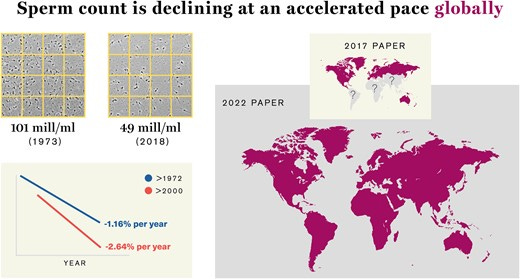Welcome to my weekly digest for December 9, 2022.
For new subscribers, this contains a roundup of my recent writings and podcasts, as well as links to the best articles from around the web this week. You can control what emails you get from me by visiting your account page.
For new paid Subscribers - thank you! - click over for instructions for accessing the Knowledge Base.
My monthly newsletter is out Monday and is a primer on doxxing.
How Long Before Alasdair MacIntyre Repudiates His Own Book?
Rod Dreher took the name of his “Benedict Option” from the last paragraph of philosopher Alastair MacIntyre’s landmark book After Virtue. MacIntyre himself, who has apparently never read The Benedict Option book, has repeatedly rejected Dreher’s use of his material. Dreher referenced yet another instance of this recently. Here’s MacIntyre’s statement.
In my view, MacIntyre’s claim that Dreher only drew from one sentence of the book is not accurate. After Virtue was published in 1981. The concluding paragraph is an extraordinarily powerful indictment of contemporary society. He wrote:
A crucial turning point in that earlier history occurred when men and women of good will turned aside from the task of shoring up the Roman imperium and ceased to identify the continuation of civility and moral community with the maintenance of that imperium. What they set themselves to achieve instead—often not recognising fully what they were doing—was the construction of new forms of community within which the moral life could be sustained so that both morality and civility might survive the coming ages of barbarism and darkness. If my account of our moral condition is correct, we ought to conclude that for some time now we too have reached that turning point. What matters at this stage is the construction of local forms of community within which civility and the intellectual and moral life can be sustained through the new dark ages which are already upon us. And if the tradition of the virtues was able to survive the horrors of the last dark ages, we are not entirely without grounds for hope. This time however the barbarians are not waiting beyond the frontiers; they have already been governing us for quite some time. And it is our lack of consciousness of this that constitutes part of our predicament. We are waiting not for a Godot, but for another—doubtless very different—St. Benedict.
While I think MacIntrye’s intent is more figurative than literal, and we need to be careful about interpreting what he means by “barbarians,” these are still very, very strong words.
The sentiments expressed in this paragraph are precisely those that today would be uttered by the Dissident Right. In fact, if you didn’t know the source, one might easily speculate that this was part of a contemporary piece from a Dissident Right figure. If MacIntyre is turned off by the Benedict Option, then, if he is aware of the Dissident Right, he must be personally horrified by the way they echo his analysis.
The alignment of MacIntrye’s conclusion with contemporary Dissident Right thought makes me wonder if he might actually end up repudiating his own book, or at least that paragraph, before he dies.
By the way, this is an example of how genuinely great or insightful thought often overspills the intent of its creator.
Please Become a Member Today
Again, ss part of my year end fundraising drive, I’m offering a special discount on Membership through the end of December.
My Member program is the community of my closet supporters. We have a private Slack channel where community members chat and build relationships. And we also do interactive Zoom sessions about twice a month where I’m able to be much more candid than I’m able to be in public writings. Next year we’ll be doing a discussion of a series of readings on the conditions of modernity that I’m very excited about.
Being a part of our Member community is great in its own right, and is also a way to help support my work, which continues to grow in reach and influence. Most of my content is free to you and everyone else, and that helps it make an impact. But it also means I need your help to keep it going.
Normally membership is $50/month, but through the end of the year you can become a Member for only $35/month on Patreon or Gumroad. You can get an even better rate of $30/month if you sign up annually via Substack for $360/year.
Please consider joining today, because again I need your help to sustain and grow my reach and impact.
Best of the Web
Great practical advice from Michael Foster and Bnonn Tennant: How to spot (and avoid) when an important-looking fight is actually a “crap trap”
Ross Douthat/NYT: What Euthanasia Has Done to Canada - “In the era of populism there is a lively debate about when a democracy ceases to be liberal. But the advance of euthanasia presents a different question: What if a society remains liberal but ceases to be civilized?”
NYT: Who Will Care for ‘Kinless’ Seniors? - Another article related to my observations on our increasingly post-familial society.
NYT: Why Are Middle-Aged Men Missing From the Labor Market?
WaPo: Drugs killed 8 friends, one by one, in a tragedy seen across the U.S.
WaPo: The crisis of student mental health is much vaster than we realize
Denny Burk shares some reflections on A Charlie Brown Christmas, which is being shown on network TV for the last time this year after being acquired by Apple’s streaming service.
Data on the global sperm count decline. Our current trend line ends in a Children of Men future.


Finally, if you haven’t finished your Christmas shopping yet, check out the Align Christmas Guide for gift ideas.
New Content
New this week:
I wrote about a moderate Republican governing approach that actually delivers results (paid only with free preview).
My podcast this week was on the non-linearity of change. Paid subscribers can read the transcript.
American Reformer hosted a special symposium this week on Stephen Wolfe’s book The Case for Christian Nationalism. John Ehrett, Mark David Hall, Timon Cline, and Cory Higdon all shared their thoughts.
You can subscribe to my podcast on Apple, Google, or YouTube.





Is there any way to interact with the Christian Nationalism symposium authors?
I found John Ehrett's contribution fairly interesting and well-put, except for this glaring misapprehension:
"I’m skeptical that any particular social configuration other than the family can be identified as distinctively "natural' ..."
Which seems to undercut his argument to some extent.
Regarding MacIntyre and Dreher, maybe the moral of the story is, "Don't base the title of your book and a key part of your thesis on a quote from someone who's still alive that you haven't spoken with and that won't endorse your ideas." Though to be clear, I like Dreher in general, though I don't like all of his choices. My guess is that MacIntyre dislikes Dreher more than he likes being consistent with things he wrote 40 years ago, so that's what happened here.
On another note, is MacIntyre worth reading for someone who doesn't intend to spend much time debating morality with atheists on the Internet? I suppose the main thing I care about is thinking through more ways to teach my children about morality and virtue.
I've always had the feeling that when moral philosophers are trying to make arguments that will appeal to both Christians and the non-religious, it's sort of like scientists making arguments about astronomy that are designed to appeal to people who believe in both a round and a flat Earth. I can see why it's necessary for a few specific purposes -- apologetics, politics -- but otherwise it feels like a waste of time.
Pascal wrote: "It is certain that the mortality or immortality of the soul must make an entire difference to morality. And yet the philosophers construct their ethics independently of this; they discuss to pass an hour." That's how I really feel.